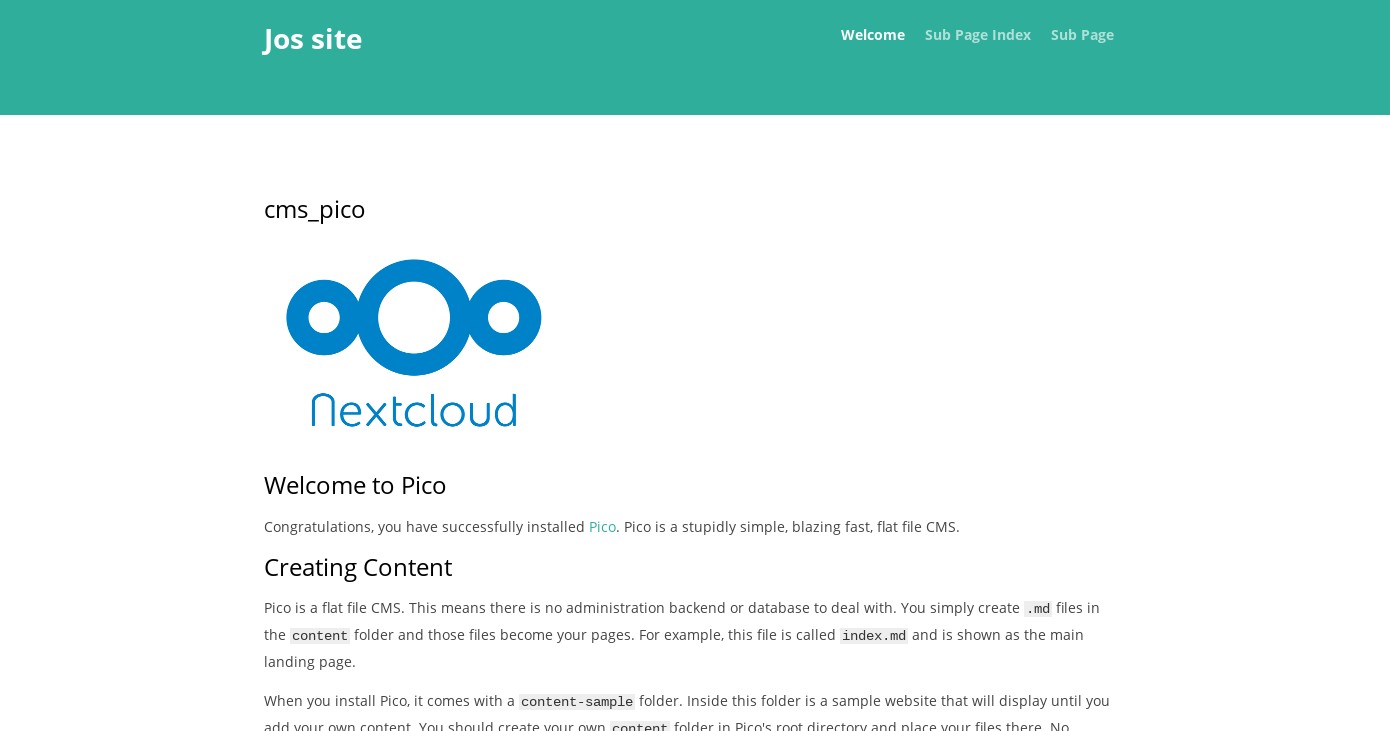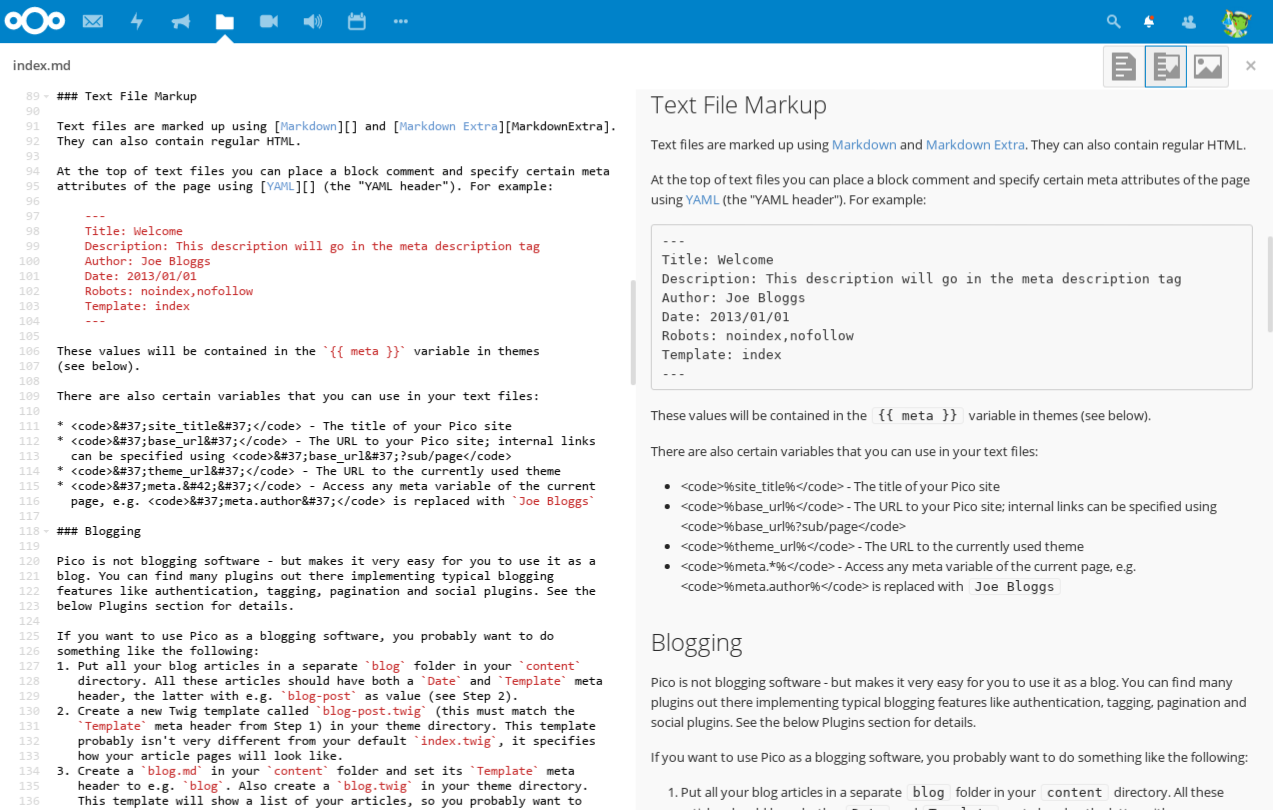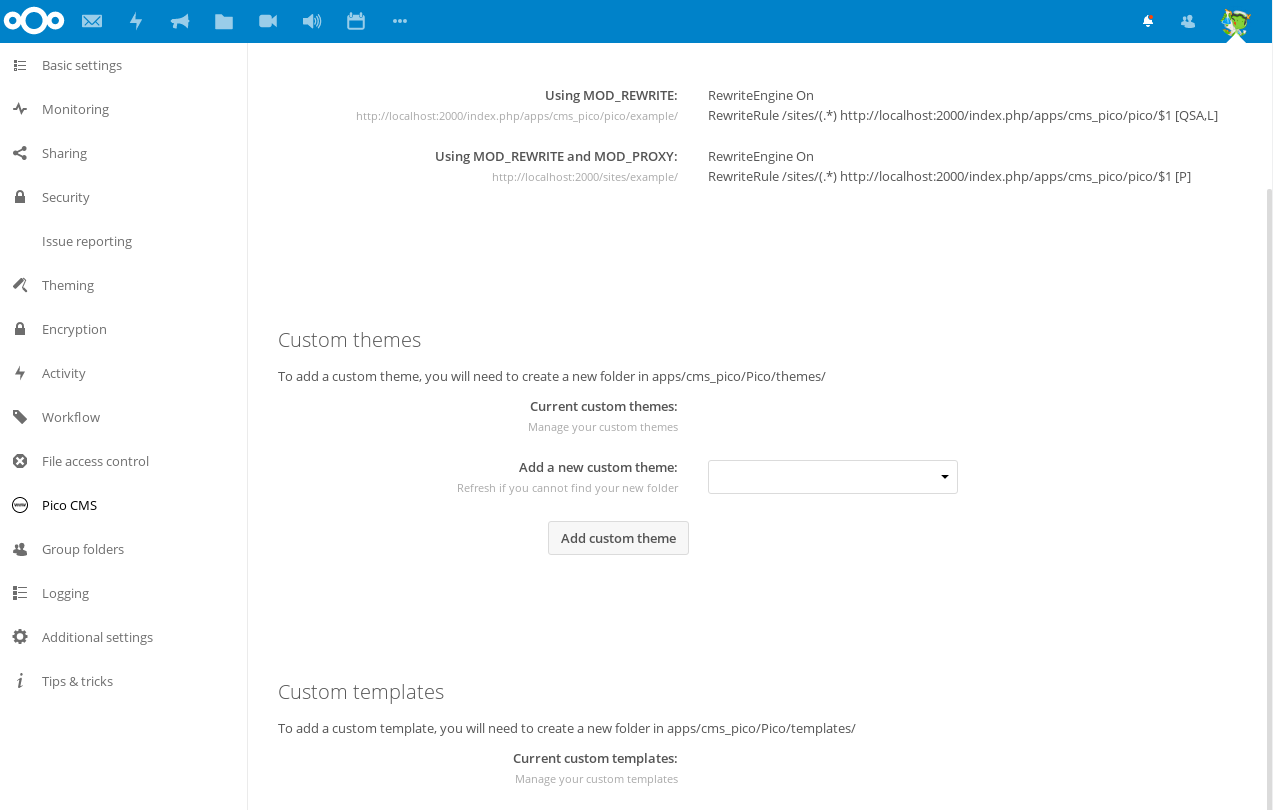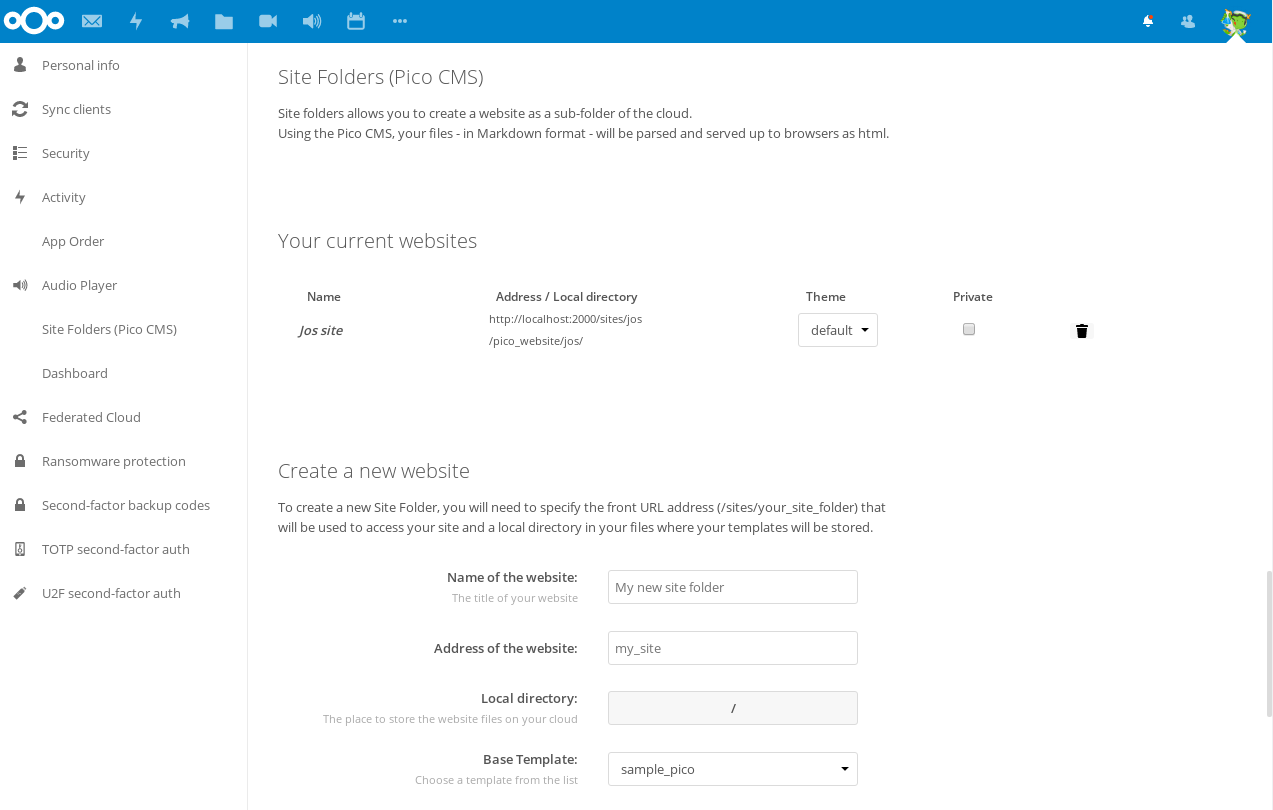Originally published at: https://nextcloud.com/blog/nextcloud-introduces-easy-website-builder-for-education-edition-with-picocms/
In August Nextcloud and 5 partners, Moodle, DeiC, regio iT, the TU Berlin and Univention, announced the Nextcloud Education Edition. We promised we’d keep working on it with them and extend it with other capabilities sought after in the educational space. Today, we are proud to release another piece: the PicoCMS App, developed in collaboration with DeiC and the PicoCMS community.
What it is
The name Pico CMS already implies some of what it offers: a very small, simple way of managing and presenting content. The goal is to let users, in an easy way, built websites that can then be accessed from the Nextcloud server, likehttps://server.com/sites/my_awesome_website
PicoCMS is described by its authors as a a stupidly simple, blazing fast, flat file CMS, further explained as a very simple to handle website builder.
After installing the Pico CMS App, users can create a new website by choosing a name and folder. A standard site is created in that location and users can easily make changes by editing markdown files and putting images in the right places. Online, the built in Nextcloud text editor can be used for the editing while offline most editors can deal with markdown files.
To make editing even easier and nicer, administrators could install the popular Nextcloud Markdown Editor from our app store. It features a nice, live preview of Markdown files, making editing a real breeze for users.
This way, the Pico CMS app can be used to manage documentation, a personal blog or homepage, resume and many other things in an easy and intuitive way! You can share the files and thus maintain the sites collaboratively.
Configuration and features
The administrator has to configure the web server to serve the sites in a easy accessible way likeserver.com/sites/site_name. The web interface provides some code that can easily be copy-pasted for this purpose. Administrators will also find themes can be installed and managed from the web interface, as well as custom templates which users get once they create a new site. Pico CMS supports plugins adding functionality suitable for blogs and other purposes and these, too, are available and can be managed by the system administrator.
Users can create one or more separate websites and will be able to pick from the installed themes for each of them. Sites or single pages can be set as private, which means their access is limited to Nextcloud users who have at least read access to the local files of the website. That means that by sharing the folder which contains the source files, the sharees also gain access to the actual website made from it! Sharing can be done using the Nextcloud groups or Circles.
We worked on the PicoCMS integration with one of its authors, Daniel “PhrozenByte” Rudolf, who fixed a number of security issues regarding 3rd party themes and made other improvements to PicoCMS to ease integration further, while generally providing advice on usage and implementation. Kudos to the Open Source spirit!
When can I get it?
Right now! Pico CMS is available already in the Nextcloud app store and will be added to the education bundle in an upcoming update.As always, your feedback is welcome, let us know what you think!





